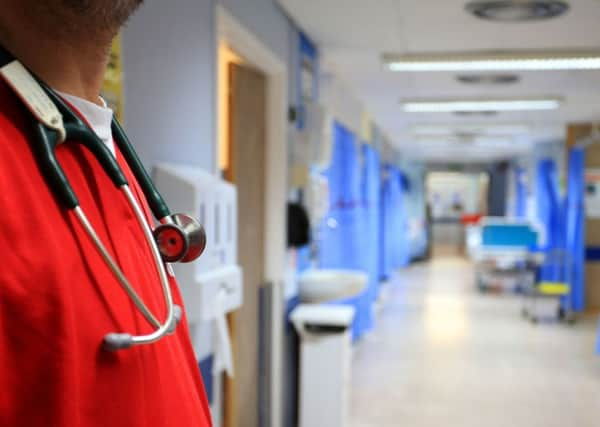Cancer study into genetics could pave the way to lifesaving personalised treatments


Scientists analysed 111 genes known to be linked to acute myeloid leukaemia (AML) in blood and bone marrow samples taken from more than 1,500 patients with the cancer.
The study, the deepest investigation of a cancer’s genetic background ever conducted, found that a patient’s reaction to treatment is linked to the cancer’s genetic changes. It is expected to change the way AML is diagnosed and treated.
Advertisement
Hide AdAdvertisement
Hide AdEvery year in England there are almost 2,500 new cases of the fast-growing and aggressive cancer, which develops in the bone marrow. People with the disease often require intensive chemotherapy treatment.
In future, new patients could be given blood tests that show which of them are likely to respond well to standard therapy and who may need more intensive or experimental treatments.
Professor Peter Campbell led a team of British scientists from the Wellcome Trust Sanger Institute in Cambridgeshire who took part in the international study.
“The genetic changes we see fundamentally cause leukaemia. They dictate the way leukaemia cells will behave; they dictate why that cell is a leukaemia cell,” he said. “What we see in this study is that there’s a huge complexity, there’s a huge variability across different patients. No one patient’s leukaemia is like any other patient’s leukaemia.”
Advertisement
Hide AdAdvertisement
Hide AdProf Campbell added: “What we can see in this dataset is that clinical variability is strongly predicted by the underlying genetics.
“The take home message I think is strongest from this study is that a large proportion of what will happen to a patient is written and encoded in the genetic changes that a cancer has.”
Researchers uncovered more than 5,000 genetic mutations affecting the prognosis of patients, which could be used to characterise different strains of the disease.
Participants in the study were then divided into 11 groups, each with its own constellation of genetic changes and clinical features.
Advertisement
Hide AdAdvertisement
Hide AdNearly all the patients had at least one mutation and 86 per cent had two or more, and their genetic make-up strongly predicted the way they responded to chemotherapy.
Following the findings, scientists from the Sanger Institute are conducting a similar analysis of tumour samples from 1,000 breast cancer patients. Results are due before the end of the year.
Despite the implications of the research there are currently only a few diagnostic laboratories in the UK, including two in Oxford and York, equipped to carry out the tests.
But Prof Campbell expects such tests to become routine in the near future, as genetic testing is increasingly brought into NHS clinics.
Advertisement
Hide AdAdvertisement
Hide AdGenomics England is a Government-funded project to sequence 100,000 genomes – complete genetic codes – of NHS patients and their relatives.
The latest research, published in the New England Journal of Medicine, was only made possible by the accelerating rate at which scientists are turning up genes linked to cancer.
Four years ago scientists announced that breast cancer could be classified as 10 broadly different diseases according to its genetic features.
British and Canadian researchers came to the conclusion after analysing 2,000 tissue samples taken from the tumours of women with breast cancer.